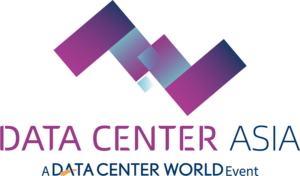As the demand for data storage and processing continues to grow, understanding the underlying infrastructure becomes crucial. A significant player in this landscape is the colocation data center, an essential element in the robust Asia Pacific data center market. These facilities provide businesses with a secure and efficient environment to house their servers, storage systems, and networking equipment.
Data Center Asia HK 2025, held from 15-17 July 2025 at AsiaWorld-Expo, Hong Kong, offers a unique opportunity to explore hat is a colocation data center and how does it work. Join us to explore the latest data center innovations and applications.

What is a Colocation Data Center?
A colocation data center is a facility where multiple customers can rent space for their servers and other computing hardware. Unlike traditional data centers owned by a single company, colocation centers allow various businesses to share resources while benefiting from enterprise-grade security, redundancy, and connectivity. This model reduces costs for businesses, as they do not need to invest heavily in building and maintaining their own data centers.
Colocation data centers typically offer dedicated server racks or cages that clients can customize according to their needs. This flexibility makes them particularly attractive to startups and SMEs looking to scale without the overhead associated with building their own infrastructure. Furthermore, with the rapid advancement in technology, attending events like DCA 2025 can provide invaluable insights into emerging trends affecting the Asia Pacific data center market.
How Does a Colocation Data Center Work?
Colocation data centers operate on a shared model that streamlines operational efficiency. When businesses choose to colocate, they are essentially renting space within a larger facility that provides essential services such as power, cooling, physical security, and internet connectivity. This structure ensures that organizations can focus on their core business functions without worrying about day-to-day maintenance and infrastructure management.
Each client is responsible for their own hardware and software, while the colocation provider manages everything else. They provide high-quality, redundant power supplies and cooling systems to ensure that all equipment remains operational. Additionally, these facilities often include advanced security measures, including biometric access, surveillance cameras, and on-site technical support. This combination of resources efficiently supports the growing requirements of companies operating within the Asia Pacific data center market.
Conclusion
In conclusion, colocation data centers play a vital role in the rapidly evolving data landscape, especially within the Asia Pacific data center market. By providing a cost-effective, secure, and scalable solution for businesses, colocation facilities enable organizations to grow without incurring excessive infrastructure costs. To truly understand the dynamics shaping this sector, we as data center builders consider you attending Data Center Asia, where industry experts will discuss critical topics and trends, including sustainability, AI, and hybrid cloud solutions relevant to the future of data centers.
